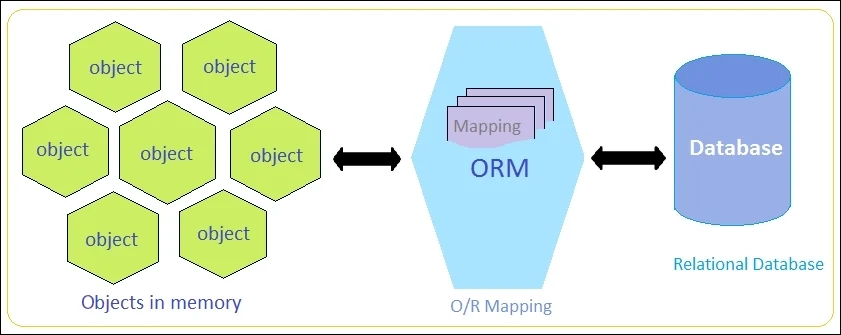Introduction
Before I go into the proper definition of ORM, let me give you an example that will help you understand the concept better.
So, have you ever used a SQL database in your application and used SQL queries to update, insert, or retrieve data, regardless of how complex the queries are? As a result, the concept of Object Relational Mapping emerges (ORM). It's also a programming approach that uses object-oriented programming languages to transform data between incompatible type systems.
It implies you may write Database queries in your favorite language's object-oriented paradigm, and numerous free and commercial programs perform relational object mapping.

ORM establishes a connection between objects written in the preferred programming language such as JavaScript and a relational database like SQL. It encapsulates and hides SQL queries in objects, allowing us to use them directly instead of SQL queries.
For, e.g., if your preferred language is Python:

Alert Ninjas! The ongoing emergence of new technologies in web development keeps the interest in this subject high. But, before you start on the big tasks, we recommend that you understand the fundamentals. With our JavaScript Course, you may jumpstart your web development career by mastering JS principles. It's now the cheapest it's ever been!
Benefits of using ORM
Now the question arises: why should we include ORM frameworks in the middle if we can utilize queries directly?

The reasons are as follows:
- So, first and foremost, you get to write in the language that you already know. Directly writing SQL queries can be difficult in some circumstances since they are complex. So, to keep fluency, we use ORM, which allows us to write in the language we are familiar with.
- Second, it separates your application logic from SQL or any other database query.
- ORMs also theoretically allow an application to switch between different relational databases. A developer may, for example, use SQLite for local development and MySQL for production. With few code changes, a production application might be moved from MySQL to PostgreSQL.
- Also, for heavy database usages, such as creating 10+ tables and many queries in them, ORM is recommended since it reduces code, improves code understanding for you and your team members, and makes your application faster and easier to maintain.






